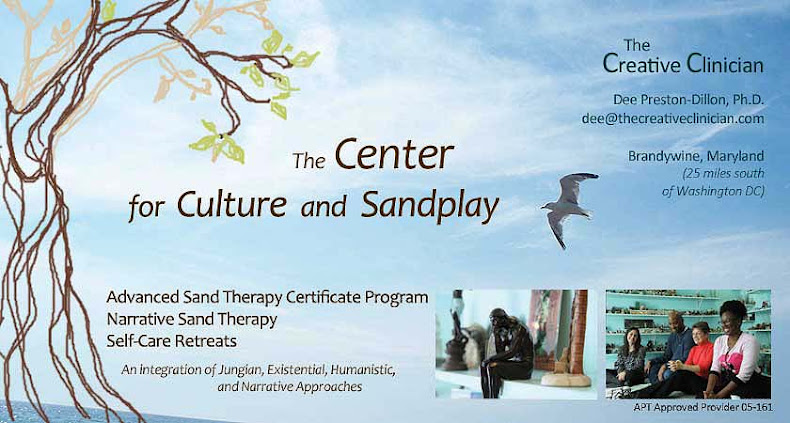Essentials of Sand Therapy: Principles and
Practice
Dee Preston Dillon, PhD
Dee Preston Dillon, PhD
Allegany College of Maryland
Monday, October 8
Monday, October 8
Contact: Christa A. Snyder, Human Services Coordinator
casnyder [at] allegany.edu 301-784-5530
Six Hour Training
Course Description and Objectives
Witnessing, Containment, Reflection and Responding, Amplification and Facilitation are core components for effective sand therapy – both sandplay and sand tray. This workshop presents the basic theoretical foundation for sand therapy, the difference between Jungian Sandplay and sand tray therapy, and demonstrates the skill sets for each of these four areas.
Our goal is safe and competent sand therapy no matter the clinician’s theoretical orientation. This training presents both theory and experiential practice.
Purpose: Through a graduated process this training will help participants
* Conceptualize ways for using sand with diverse populations.* Explore ways to understand and respond to sand scenes especially with a mindful presence.
* Understand the role of the clinician to witness and contain activity in the sand.
* Gain initial skills for creating a safe and protected space for client use of sand.
* Appreciate the rigor, depth, skills, and process that ground sand therapy and clinician efficacy.
Upon completion of this workshop participants will:
* Describe the function of symbols to bridge intrapsychic phenomena with a client’s life world, and externalize trauma and developmental injunctions.
* Point out how sand is a projective process wherein the role of the clinician and the client differ from other play therapy approaches.
* Describe the ethics for professional training, the role of the clinician, and the four grounding components for clinical use of sand: Witnessing, Containment, Reflection and Responding, Amplification and Facilitation.
-- Please register with Christa (contact info above) by 26 September to insure your space!
